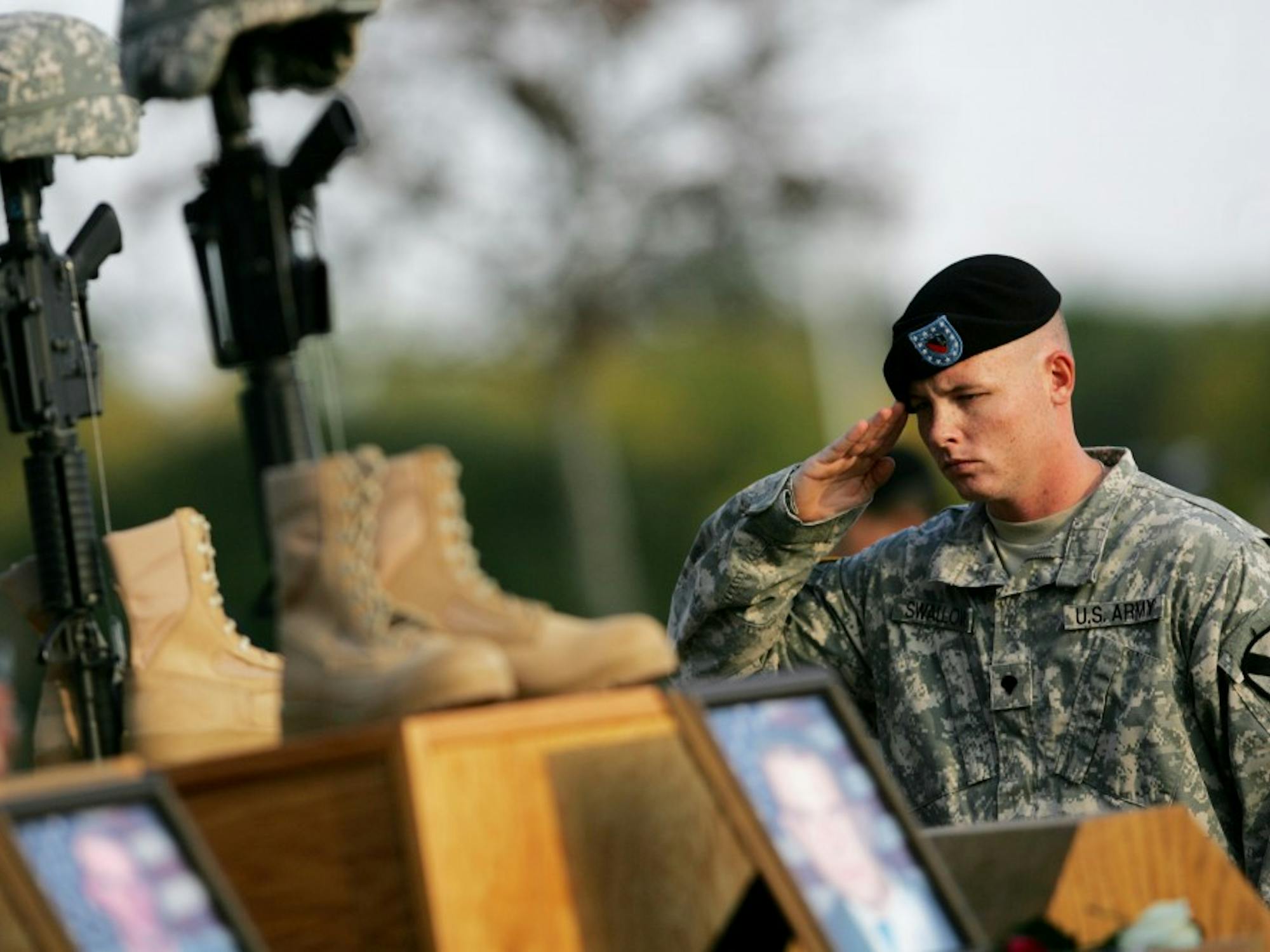FORT HOOD, Texas — President Barack Obama brought words of resolve Tuesday to an Army post still reeling from a doctor’s deadly rampage, offering comfort amid fears of extremism in the ranks and complaints that this tragedy could have been averted.
“It may be hard to comprehend the twisted logic that led to this tragedy. But this much we do know, no faith justifies these murderous and craven acts,” Obama told more than 15,000 soldiers and civilians gathered for a memorial service four days after the massacre. “For what he has done, we know that the killer will be met with justice, in this world, and the next.”
Obama, after visiting privately with mourners and many of the injured, called the attack, which left 13 dead and dozens wounded, painful and incomprehensible, the more so because it occurred on an Army post, the nation’s largest.
“This is a time of war. And yet these Americans did not die on a foreign field of battle,” Obama said. “Here, at Fort Hood, we pay tribute to 13 men and women who were not able to escape the horror of war, even in the comfort of home.”
He tread carefully about the motives of Army psychiatrist Maj. Nidal Malik Hasan, alluding to his Muslim faith without directly mentioning or blaming it. Aides said the president wants to let the investigation run its course.
The president and first lady Michelle Obama spent about 90 minutes before the ceremony with relatives of those slain by Hasan, and dozens of survivors. They spent another half-hour at Darnall Army Medical Center afterward, visiting privately with victims too badly hurt to attend the ceremony.
Hasan fired more than 100 shots before two police officers ended the rampage in a gunfight, authorities say. He is recovering at a military hospital in San Antonio.
His name was never uttered by Obama or the two generals who spoke at the ceremony Tuesday outside the III Corps Headquarters, which was ringed by a makeshift security barrier erected out of huge metal shipping containers.
Eulogizing after mass tragedies is a somber duty of the modern presidency, and this was Obama’s first such effort. He was resolute and somber; he did not well up, and his voice did not crack.
He spoke movingly, offering something about the upbringing, family lives and Army service of each victim by name.
“We knew these men and women as soldiers and caregivers. You knew them as mothers and fathers; sons and daughters; sisters and brothers,” Obama said.
“Their life’s work is our security, and the freedom that we too often take for granted.”
Survivors filed into the service on crutches. Some wore slings. One was in a wheelchair.
There were teenage mourners in jeans, and widows in black dresses. Some in the crowd flinched at the blasts of three 7-shot volleys, not a 21-gun salute; that’s for festive occasions and eyes welled when a sergeant in a cavalry hat blew taps.
Lt. Gen. Robert Cone, commander of III Corps and Fort Hood, noted that more than 500 Fort Hood soldiers have been lost in Iraq and Afghanistan, “but never did we expect to pay such a high price at home.”
Those killed left behind 19 children, plus one on the way, Cone said.
The Army’s chief of staff, Gen. George Casey, spoke of the “newlyweds, single moms, immigrants, teenagers and 50-somethings” among the slain, all bound together by a desire to serve the country.
He called the attack “unimaginable … a kick in the gut.”
Ringing the stage was a memorial to each of the slain: a photo, a pair of boots, a helmet and dog tags set atop a rifle, a version of the battlefield cross thought to have originated in the Civil War as a way to mark the location of a dead soldier.
At the end of the service, Obama placed a presidential coin on each, as he and the first lady wordlessly paused in tribute at each display.










